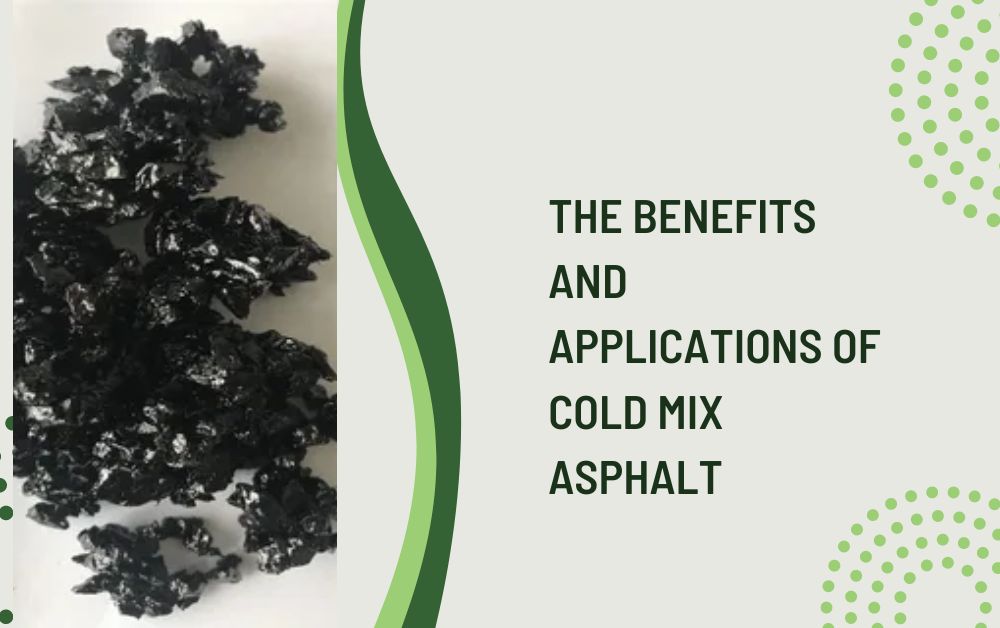Asphalt is an essential material in the construction and maintenance of roads, pathways, and parking areas. Among the various types of asphalt, cold mix asphalt stands out for its unique properties and advantages, especially in terms of application and environmental impact. In this comprehensive guide, we will explore what cold mix asphalt is, its benefits, how it’s used, and why it might be the ideal choice for your next paving project.
Understanding Cold Mix Asphalt
What is Cold Mix Asphalt?
Cold mix asphalt is a blend of asphalt binder, fines, and aggregates that can be applied at ambient temperatures. Unlike hot mix asphalt, which requires high temperatures for application, cold mix asphalt is mixed and applied at lower temperatures, making it more environmentally friendly and easier to handle.
Key Components of Cold Mix Asphalt
The composition of cold mix asphalt typically involves:
- Asphalt binder: This is a fluid asphalt cement that holds the mixture together.
- Aggregates: These are crushed stones and sand which provide the structure.
- Fines: Small particles that help to fill gaps and make the mix dense.
These components are mixed with a special emulsion that allows the asphalt to remain pliable and effective at lower temperatures.
Benefits of Cold Mix Asphalt
Cold mix asphalt offers several advantages that make it a preferred choice for many road repair and construction tasks.
Easy to Use
One of the most significant benefits of cold mix asphalt is its ease of use. It does not require the extensive heating that hot mix asphalt does, which means it can be used straight from the container or bag. This feature makes it particularly useful for quick repairs and in situations where equipment for heating asphalt is not available.
Cost-Effective
Cold mix asphalt is often more economical than hot mix asphalt because it does not require expensive heating equipment or high energy costs. This can make it a more affordable option for small repairs and local projects.
Durable in Various Weather Conditions
Cold mix asphalt is designed to be flexible and durable, making it suitable for varying weather conditions. It can be applied in cold weather where hot mix would cool too quickly to be workable. Additionally, its ability to expand and contract with temperature changes reduces the likelihood of cracks.
Environmentally Friendly
With no need for high-temperature heating, cold mix asphalt produces fewer emissions than hot mix asphalt. This makes it a more environmentally friendly option for paving and road repairs.
Applications of Cold Mix Asphalt
Road Repairs and Pothole Patching
Cold mix asphalt is ideal for repairing potholes, especially during the colder months when hot mix asphalt cannot be used. Its ability to adhere to existing asphalt makes it excellent for patching holes and cracks effectively.
Temporary Surfacing
Because cold mix asphalt can be applied quickly and does not require setting time, it is perfect for temporary road surfaces and detours. It can be laid down, compacted, and used almost immediately, which is particularly useful in emergency situations or during short-term construction projects.
Low-Traffic Roads and Pathways
For areas that do not sustain heavy traffic, such as bike paths, park walkways, and rural roads, cold mix asphalt provides a durable, cost-effective paving solution that is quick to apply and long-lasting.
How to Apply Cold Mix Asphalt
Preparation of the Surface
Before applying cold mix asphalt, it is essential to prepare the surface. This involves cleaning the area of any debris, water, or loose material to ensure the asphalt adheres properly and lasts longer.
Application
Cold mix asphalt can be poured directly into potholes or other areas needing repair. It should be compacted using a tamper or roller to make sure it is packed tightly. The compaction helps to remove air pockets and ensures the durability of the repair.
Curing Time
While cold mix asphalt can be driven on immediately, it takes longer to fully cure than hot mix asphalt. It is generally advisable to allow a few days for the material to set completely, especially in cooler weather.
Conclusion
Cold mix asphalt is a versatile paving material that offers significant benefits in terms of ease of use, cost-effectiveness, and environmental impact. Its ability to be applied in various weather conditions and for different types of roadworks makes it an invaluable tool in both small-scale repairs and larger projects. By choosing cold mix asphalt, you can ensure quick, effective, and durable road maintenance that stands the test of time.
If you’re planning a paving project or need to conduct quick road repairs, consider using cold mix asphalt for an efficient and practical solution.
For more insightful articles related to this topic, feel free to visit toppersblogs.com


